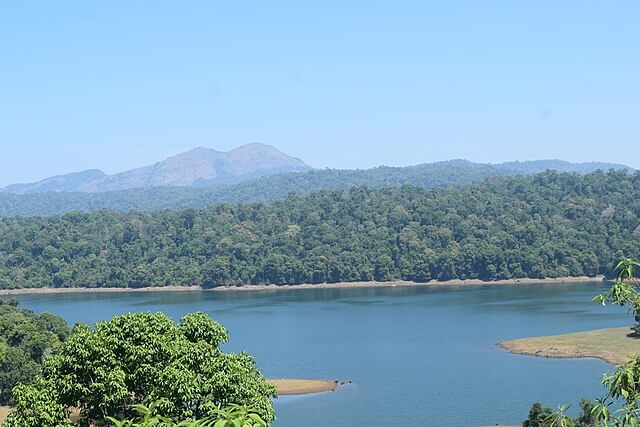
The world is on the brink of a water crisis, with demand for fresh water expected to exceed supply by 40% by the end of the decade, according to experts. In light of this, a landmark report on the economics of water has urged governments to stop subsidizing the extraction and overuse of water, while industries from mining to manufacturing must overhaul their wasteful practices. The report also states that nations must manage water as a global common good, due to the fact that most countries rely heavily on their neighbors for water supplies. Overuse, pollution, and the climate crisis are all threatening global water supplies. The report is intended to highlight the crisis in a way that policymakers and economists can understand, much like the Stern review of the economics of the climate crisis in 2006 and the Dasgupta review of the economics of biodiversity in 2021.
The report’s authors, Johan Rockstrom, the director of the Potsdam Institute for Climate Impact Research, and co-chair of the Global Commission on the Economics of Water, and Mariana Mazzucato, a professor at University College London and also a lead author of the report, have said that the world’s neglect of water resources is leading to disaster. Rockstrom said, “The scientific evidence is that we have a water crisis. We are misusing water, polluting water, and changing the whole global hydrological cycle, through what we are doing to the climate. It’s a triple crisis.” Mazzucato added, “We need a much more proactive, and ambitious, common good approach. We have to put justice and equity at the centre of this, it’s not just a technological or finance problem.”
The report marks the first time the global water system has been scrutinized comprehensively and its value to countries – and the risks to their prosperity if water is neglected – laid out in clear terms. The authors hope that policymakers and economists will recognize the crisis and take action accordingly.
According to Rockstrom, many governments still do not realize how interdependent they are when it comes to water. Most countries depend on neighboring countries for about half of their water supply, known as “green” water because it is held in soils and delivered from transpiration in forests and other ecosystems, when plants take up water from the soil and release vapor into the air from their leaves.
The report outlines seven key recommendations, including reshaping the global governance of water resources, scaling up investment in water management through public-private partnerships, pricing water properly, and establishing “just water partnerships” to raise finance for water projects in developing and middle-income countries.
More than $700 billion of subsidies globally go to agriculture and water each year, and these often fuel excessive water consumption. Water leakage must also be urgently addressed, the report found, and restoring freshwater systems such as wetlands should be another priority.
Water is fundamental to the climate crisis and the global food crisis. “There will be no agricultural revolution unless we fix water,” said Rockstrom. “Behind all these challenges we are facing, there’s always water, and we never talk about water.”
Many of the ways in which water is used are inefficient and in need of change, with Rockstrom pointing to developed countries’ sewage systems. “It’s quite remarkable that we use safe, fresh water to carry excreta, urine, nitrogen, phosphorus – and then need to have inefficient wastewater treatment plants that leak 30% of all the nutrients into downstream aquatic ecosystems and destroy them and cause dead zones. We’re really cheating ourselves in terms of this linear, waterborne modern system of dealing with waste. There are massive innovations required.”
The United Nations water summit held in March was the first time in over four decades that the United Nations has convened to discuss water, with past efforts hindered by governments opposed to any kind of international water management.
Henk Ovink, a special envoy for international water affairs for the Netherlands, said the conference was crucial. “If we are to have a hope of solving our climate crisis, our biodiversity crisis and other global challenges on food, energy and health, we need to radically change our approach in how we value and manage water,” he said. “[This] is the best opportunity we have to put water at the centre of global action to ensure people, crops and the environment continue to have the water they need.”
——————————————————————————
At Natural World Fund, we are passionate about stopping the decline in our wildlife.
The declines in our wildlife is shocking and frightening. Without much more support, many of the animals we know and love will continue in their declines towards extinction.
When you help to restore a patch of degraded land through rewilding to forests, meadows, or wetlands, you have a massive impact on the biodiversity at a local level. You give animals a home and food that they otherwise would not have had, and it has a positive snowball effect for the food chain.
We are convinced that this is much better for the UK than growing lots of fast-growing coniferous trees, solely to remove carbon, that don’t actually help our animals to thrive.
This is why we stand for restoring nature in the UK through responsible rewilding. For us, it is the right thing to do. Let’s do what’s right for nature!
Support our work today at https://naturalworldfund.com/ and join in the solution!

